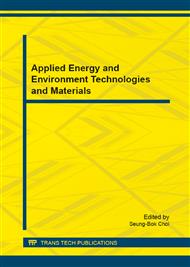[1]
OECD, OECD. Innovation and the Development Agenda. Paris. (2010).
Google Scholar
[2]
Yigitcanlar T., Planning for knowledge-based development: global perspectives, Journal of Knowledge Management, 13(5), 228-242, (2009).
DOI: 10.1108/13673270910988079
Google Scholar
[3]
R. Florida, The Rise of Creative Class: And How It's Transforming Work, Leisure and Everyday Life, New York, Basic Books. (2004).
DOI: 10.25071/1705-1436.180
Google Scholar
[4]
R. Florida, Cities and the creative class. New York: Routledge. (2005).
Google Scholar
[5]
C. Leite. São Paulo, megacidade e redesenvolvimento sustentável: uma estratégia propositiva. URBE. Revista Brasileira de Gestão Urbana, v. 2, n. 1, pp.117-126, jan/jun. (2010).
Google Scholar
[6]
A.A.T.B. Alvim, Novas configurações produtivas como estratégias de desenvolvimento local: perspectivas ao planejamento urbano. Exacta, São Paulo, v. 6, n. 1, pp.157-168, jan/jun. (2008).
DOI: 10.5585/exacta.v6i1.809
Google Scholar
[7]
T. Yigitcanlar, Comparing: knowledge-based urban development of Vancouver, Melbourne, Manchester and Boston. In Building prosperous knowledge cities: policies, plans and metrics. (2010).
DOI: 10.4337/9780857936042.00028
Google Scholar
[8]
M.; Catharino, D. Damiao, D. Zouain, Urban Technology Parks Model as instrument of Public Policies for regional/local development: Technology Park of Sao Paulo. XXII IASP – World Conference on Science and Technology Parks. HELSINKI , (2006).
DOI: 10.1109/picmet.2007.4349348
Google Scholar
[9]
T. Yigitcanlar, K. Metaxiotis, and J. Carrillo, (Eds. ) Building prosperous knowledge cities: policies, plans and metrics. London: Edward Elgar Publishing. (2012).
DOI: 10.4337/9780857936042
Google Scholar
[10]
S. Kuhlmann, Lógicas e evolução de políticas públicas de pesquisa e inovação no contexto da avaliação. Avaliação de políticas de ciência, tecnologia e inovação: diálogos entre experiências estrangeiras e brasileira. Brasília: Centro de Gestão e Estudos Estratégico (CGEE), (2008).
DOI: 10.18226/23190639.v8n2.01
Google Scholar
[11]
C. Edquist. Livro Azul: Consolidação das recomendações da IV Conferência Nacional de Ciência, Tecnologia e Inovação. Painel Diplomacia da Inovação,. Brasília. (2010).
Google Scholar
[12]
R. Spolidoro, Science and Technology Parks and sustainable solutions for global challenges: perspectives from a South American School of Thought on development. XXVIII IASP – World Conference on Science and Technology, Parks, COPENHAGEN, (2011).
Google Scholar
[13]
M. Sarimin, T. Yigitcanlar. Towards a comprehensive and integrated knowledge-based urban developmente model: status quo and directions. International Journal of Knowledge-Based Development, 3(2), pp.175-192, (2012).
DOI: 10.1504/ijkbd.2012.047035
Google Scholar
[14]
S. Borrás, C. Edquist. The choice of innovation policy instruments, Technol. Forecast. Soc. Change 2013. In press.
Google Scholar
[15]
D. M. Zouain, Parques Tecnológicos: planejamento e gestão. Brasília: ANPROTEC: SEBRAE, (2006).
Google Scholar
[16]
Y. Mishing, in: Diffusion Processes in Advanced Technological Materials, edtied by D. Gupta Noyes Publications/William Andrew Publising, Norwich, NY (2004), in press.
Google Scholar


